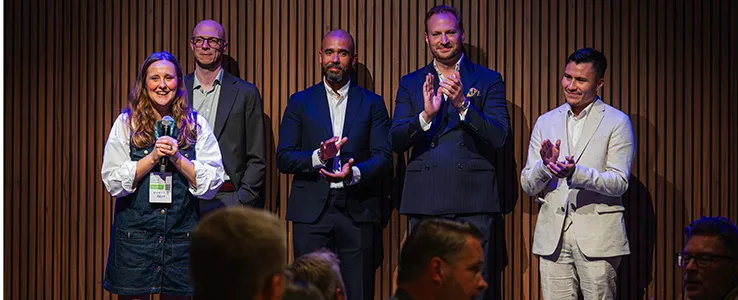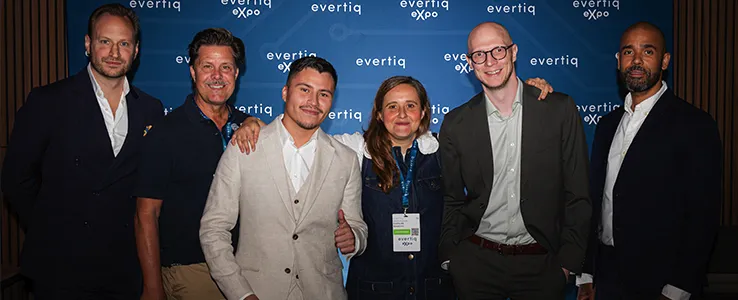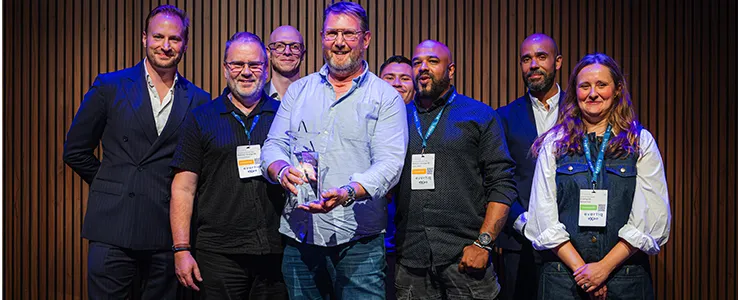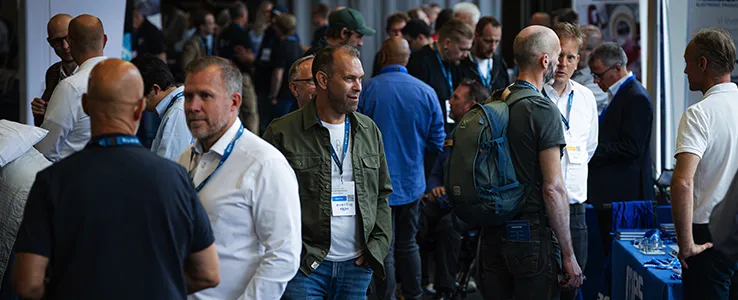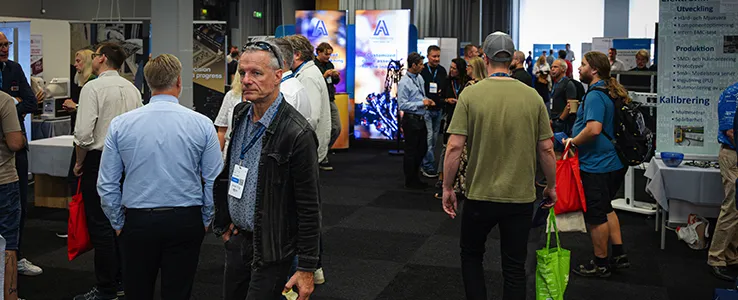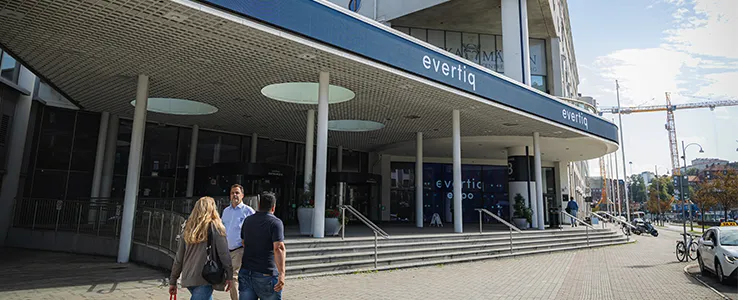Record attendance at Evertiq Expo Gothenburg 2025
On September 4, Evertiq Expo Gothenburg once again brought together the Swedish electronics industry for a full day of engaging discussions, networking, and a focus on the future.
This year’s edition attracted 694 visitors from 324 companies, with 159 exhibiting companies – a total of 483 companies represented throughout the day. Visitor attendance increased by more than 30% compared to last year, setting a new record for the expo.
The program covered a wide range of current topics within the industry. Semicon Sweden provided an update on the Swedish semiconductor strategy and discussed how Sweden can strengthen cooperation within the EU’s semiconductor initiatives.
Global Electronics Association and in4ma presented an update on the European EMS market during the keynote "EMS-Industry, we have a Problem". Focusing on Sweden specifically, the experts showed that the country has experienced long-term growth, although 2024 proved to be a significantly weaker year. The Swedish EMS market declined by 3% in 2024, and 2025 is currently shaping up to be relatively subdued. Despite the downturn in 2024, Swedish EMS production has more than doubled over the past decade, and employment has increased by over 20% since 2013.
The pace of innovation in the electronics industry has never been higher. In with the new, out with the old. Unfortunately, this is not purely positive, as it also creates challenges, particularly when it comes to the phase-out of certain components – known as obsolescence. On stage, Ronny Nietzsche from Rochester Electronics highlighted how the industry deals with hundreds of thousands of end-of-life (EOL) notifications every year. Nietzsche noted that current design standards and concepts, such as “Design for Excellence”, often address manufacturing, testing, or sourcing, but do not adequately account for obsolescence. During his presentation, he outlined strategies for incorporating considerations for future EOLs already at the design stage – a concept he calls “Design for Obsolescence.”
Sustainability and reuse were also central themes of the day. Stefan Theil, CEO of Factronix, emphasised the importance of extending component life cycles to reduce electronic waste. Factronix provides services such as component recycling, laser reballing, reballing, and testing – processes that give electronic components a second life. Theil referred to this approach as a “third source” of component supply.
Despite the less optimistic numbers presented on stage, the atmosphere on the expo floor was entirely different. Many companies expressed optimism about the remainder of the year. The mood was defined by forward-looking thinking and business opportunities, creating a clear contrast between the economic data shown on stage and the experience on site.
© Evertiq
Evertiq Expo Gothenburg once again confirmed its role as a central meeting place for the electronics industry – a platform where both challenges and opportunities are openly discussed, and where optimism persists even in tougher times.

